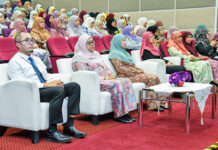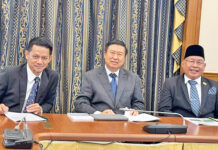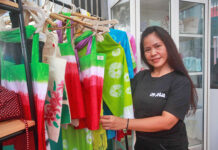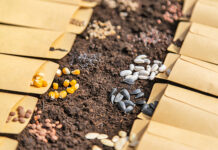ANN/THE STAR – At 15, Darwisy Razin Jaslani returned home burdened with thoughts. He struggled to grasp the concept of women’s monthly bleeding. He questioned whether this might lead to excessive blood loss and potential harm. He turned to his mother, Nor Haidah Abdul Majid Taib, 53, for answers.
Over lunch, the mother and her teenage son engaged in a conversation, aiming to comprehend menstruation through a scientific lens, rather than a cultural one. Nor Haidah vividly recalled the day. “Darwisy came home dissatisfied with what he had learned, prompting him to seek more details,” she recounted. Despite his gender, the discussion didn’t discomfort Darwisy. Nor Haidah remarked, “He raised numerous queries, and I provided thorough explanations.”
Now 17, Darwisy said he once thought that knowledge about menstruation would help him excel in biology. “But after a while, I realised that it helps me understand women better, especially when I grow up and have a family of my own,” he said.
“I know most women have their periods once a month. If they don’t, they’re most likely pregnant or having problems with their cycle. Some would also have mood swings and abdominal pain caused by their period and hormonal imbalance,” he said.
For a long time, menstruation was a hushed conversation between a mother and her daughter, and more often than not, that discussion revolved around hygiene and the disposal of used menstruation products. Not many mothers explain what menstruation is biologically and how it affects how a woman feels during that time of the month.
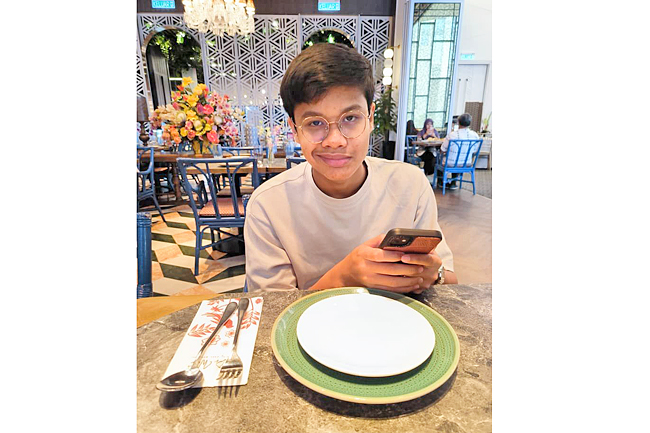
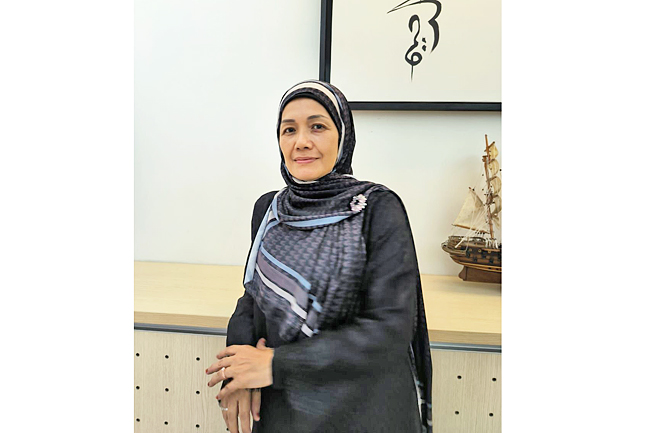


But things are slowly changing. Younger mothers are now educating their sons about menstruation so males in the house are more emphatic and understanding towards the female family members’ biological process.
“I think it’s really important to include men in the conversation. They have been excluded for the longest time and exposing this topic to them is one of the ways to stop the shame some women feel about menstruation,” Nor Haidah said.
In May, Women, Family and Community Development Minister Datuk Seri Nancy Shukri said that period should not be seen as taboo. It is a normal biological process and “it’s time for men to understand that menstruation is a natural part of human being”.
In an event organised by a feminine hygiene brand, she also stressed that discussing periods should not be considered taboo among students, and that education and awareness were crucial in dismantling the stigma surrounding menstruation.
On its website, the United Nations International Children’s Emergency Fund (UNICEF) published an article on why it is important to talk to boys about periods. This, it said, can help correct any misconceptions or myths boys might have, promote accurate knowledge and tackle stigma around menstruation. It will also help boys to understand that periods are natural, while encouraging them to seek further information and foster empathy.
Obstetrics and gynaeoncology consultant Dr Mohamad Faiz Mohamed Jamli said period shame is a cultural issue, manifested through how only women talk about it and how, decades ago, sanitary pads were wrapped in paper or put in black plastic bags in villages’ sundry shops.
“As such, it’s important that the family unit work together to educate both boys and girls. Menstruation is the last phase of puberty for girls and it should be seen as a normal biological process,” he added.
He said while parents should teach girls about the changes that are happening to their bodies during puberty, boys should also be taught about it so they understand menstrual cramps and not make fun of girls at school.
“When boys have this knowledge from home, they go to school with better understanding about the process women undergo. When they see leakage, for example, they will inform respectfully, and not make fun of it. This is how we can stop period shame,” he said. “Boys should be taught that pad, like lipstick or make-up is something girls use, and isn’t something that should be hidden. Education starts from home and mothers play a big role in helping boys understand this.”
Parents, he said, should also help girls who are new to menstruation to monitor her menstrual cycle.
Whenever Merryn Tan could not “function in her best self”, her husband will explain to their two sons that she needs some rest today. “And my youngest, who is 10 years old will ask: Oh, is it the time of the month already?” said the 46-year-old baker from Shah Alam.
Tan said her husband has no problem answering and explaining to the boys whenever they ask for more details to add on the information they have gathered during lessons at school.
“Our conversation on menstruation comes naturally since we are very open with the boys.
We use proper terms and we don’t go beating around the bush with euphemisms. It is not a taboo topic for us, even though I am the only woman in this family,” added Tan who also blogs on parenting.
Her eldest son, Ethan Yeow said, “The first time I heard about period, I thought it sounded gross, but as I learn to understand it further, I now know it is an important part of the female re-productive system.”
Yeow said he mostly learns about menstruation in human reproduction classes but he always goes back to his parents for more explanation.
“I think I can rate my knowledge on this as nine out of 10. I can tick almost all the boxes – monthly cycle, mood swings, premenstrual symptoms (PMS) and feminine products,” said Yeow.
Yeow believes that it is important for boys to have basic knowledge on menstruation to understand women better.
TALKING POINT
Here are some tips on how to talk about menstruation to girls and boys:
Stick to facts: Use clear language and a normal voice tone, with a focus on the physiology and the biological process of the body.
Emphasise that it is natural: Reassure that menstruation is a normal part of growing up and a natural process that happens to girls once they reach puberty.
Talk about the experience: Talk about the many changes girls will experience leading up to their first period, and the symptoms they will have during the menstrual cycle which can differ each month and for every girl.
Encourage activities and a nutritious diet: Give reassurance that girls can continue doing all the things they usually do.
Introduce feminine hygiene products: Disposable sanitary pads, reusable pads, cloths or period underwear are all safe and clean ways to manage a period.
Answer their questions: Try to provide simple answers that are appropriate for his or her age. – Zalina Mohd Som


